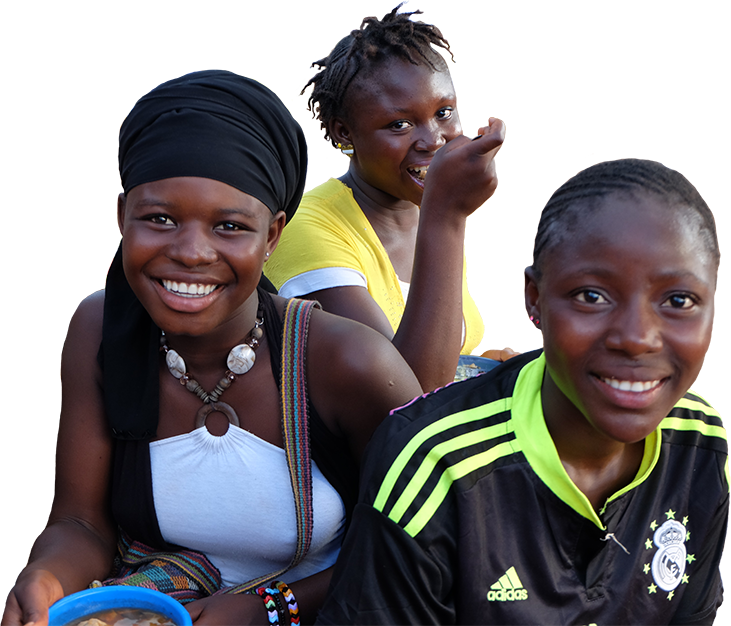Formative research helps us understand the challenges and opportunities that adolescents face, as well as barriers and enablers to behavior change. Routine monitoring is needed to assess progress toward program goals and national targets. Implementation research and evaluations are needed to identify effective approaches. The Adolescent Nutrition Resource Bank includes a variety of protocols and tools for monitoring, evaluating, and researching adolescent nutrition. If you have relevant monitoring, evaluation, or research resources, please send them to info@advancingnutrition.org.
We found 128 resource(s)
Children As Agents of Change: Children’s Role in Influencing Health and Nutritional Practices
Case Study published by Children for Health in
This rapid sift is from the Children’s Participation in Action and Learning for Nutrition (PCAANS) project in Mozambique. The aim was to inform the project's approach to nutrition education, identify and understand research on how children influence health behaviors, and identify qualitative methodologies to evaluate the impact of children’s…
Preconceptional Nutrition Interventions for Adolescent Girls and Adult Women: Global Guidelines and Gaps in Evidence and Policy with Emphasis on Micronutrients
Journal Article published by The Journal of Nutrition in
This article reviews preconception nutrition in women and girls globally, including the key factors that influence women's outcomes and (if they become pregnant) their child's outcomes. The article describes global guidelines on preconceptional nutrition interventions; highlights gaps in evidence, guidelines, and policy; and discusses…
Assessment of Adolescent Girl Nutrition, Dietary Practices and Roles in Zimbabwe
Technical Report published by Emergency Nutrition Network (ENN) in
This assessment identified a variety of factors that may contribute to adolescent girl nutritional status in Zimbabwe. Rates of food insecurity and low dietary diversity were high. Pregnancy among unmarried adolescents was also common.
Case Study on Adolescent Inclusion in the Care Group Approach—The Nigeria Experience
Journal Article published by Emergency Nutrition Network (ENN), USAID in
This article documents the experiences of adolescent girls in selected towns in Northern Nigeria participating in care groups of 10–15 trained volunteer community-based health educators. Their experiences were captured through focus group discussions and key informant interviews. It highlights key learning points (barriers, boosters, and best…
Conceptual Framework for Adolescent Girls' Nutrition
Informational Infographic published by SPRING in
This one-page conceptual framework was developed to guide the 2016 USAID study "Diet and Eating Practices among Adolescent Girls in Low- and Middle-Income Countries: A Systematic Review." The framework depicts the many factors that influence adolescent girls' nutrition and their impact on short-term, long-term, and intergenerational consequences.
Ghana Adolescent Health Service Policy and Strategy 2016-2020
Policy published by Ghana Health Service in
The Ghana Adolescent Health Service Policy and Strategy 2016-2020 focuses on strategies to promote, prevent, and manage the health and development of Ghanaian adolescents. It provides a framework for health service provision and other health-related interventions for adolescents that can be implemented to support progress toward achieving health…
Tanzania National Multisectoral Nutrition Action Plan (NMNAP) 2016-2021: From Evidence to Policy to Action
Policy published by Prime Minister's Office, Tanzania in
Tanzania's National Multisectoral Nutrition Action Plan aims to improve maternal, infant, young child, and adolescent nutrition. The plan includes a focus on increasing school attendance among adolescent girls, using schools as an arena for health and nutrition interventions, and targeting communications to increase adolescent knowledge and…
Formative Research on Adolescent Health and Nutrition in Udaypur District of Nepal: Proposal
Assessment Tool published by SABAL, USAID in
This research proposal proposes conducting formative research to learn about the experiences and preferences of girls ages 10 to 19 in Nepal, specifically with regard to their information needs, preferences for program format and content, barriers and enablers to their participation in health programs, and health care seeking behaviors.



